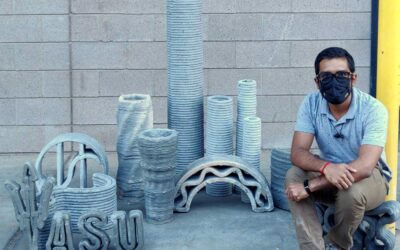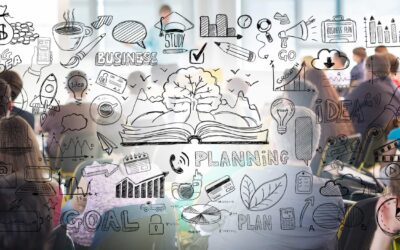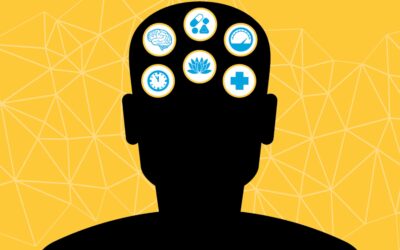Sun Devil wins national award for support of women in engineering
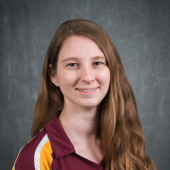 BY MONIQUE CLEMENT
BY MONIQUE CLEMENT
Sep 28, 2020
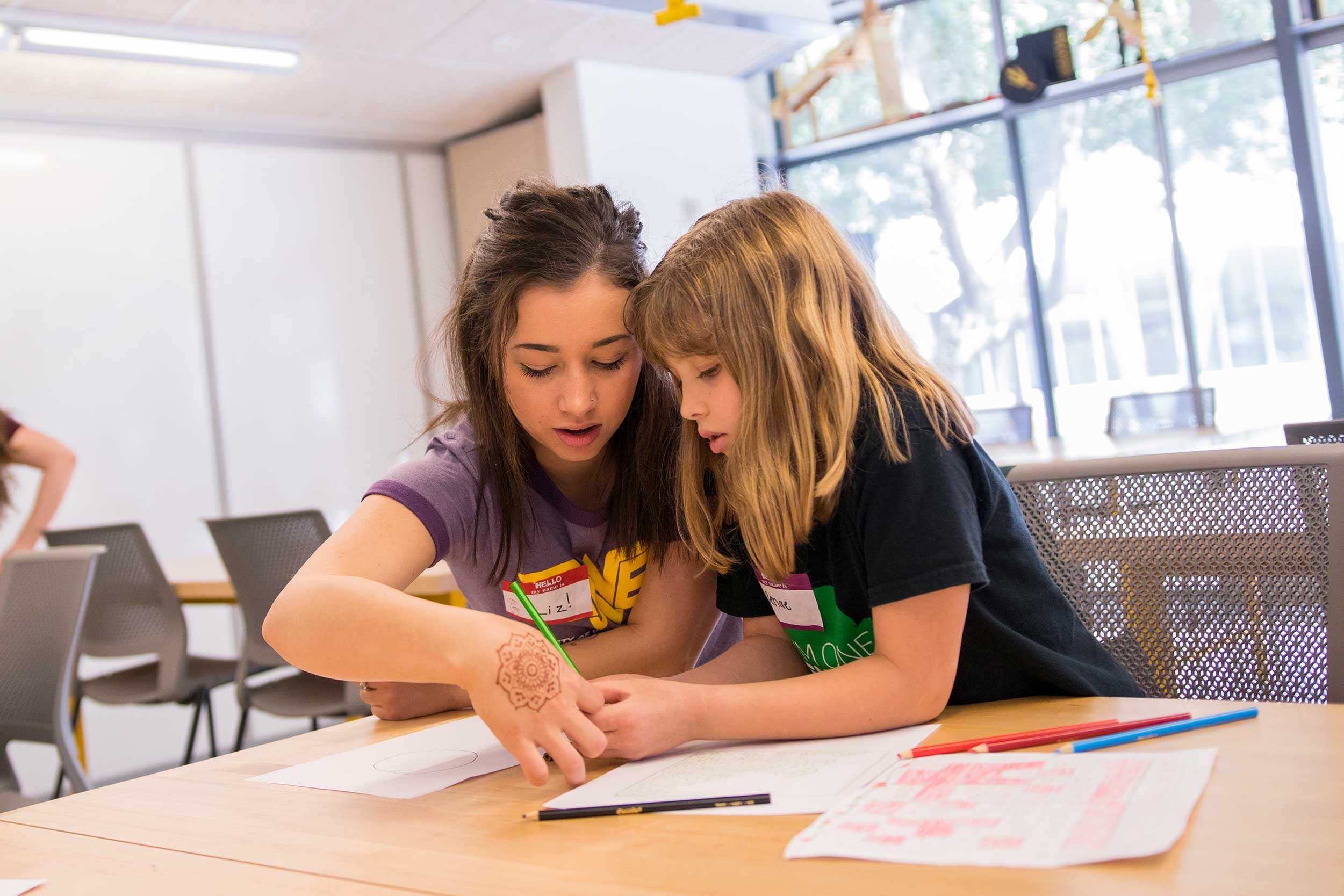
People told Elizabeth Jones for years that she couldn’t be an engineer. But she knew that not only could she become one, but so could many others who didn’t fit engineering stereotypes.
Now, the fourth-year electrical engineering student in the Ira A. Fulton Schools of Engineering at Arizona State University has been named one of the top contributors to the collegiate engineering community by the Society of Women Engineers, a global advocacy, service and educational not-for-profit organization supporting women and diversity in engineering and technology.
The SWE Outstanding Collegiate Member award is given to only 10 society members in the nation each year, celebrating those who demonstrate outstanding contributions to SWE, the engineering community and their university.
Jones has been recognized for “impressive academic drive, for tireless outreach and for mentoring and fostering a sense of empowerment and belonging among women engineers, well beyond the classroom.”
“When I was younger, I didn’t have people challenging the gender norm — I was told to teach, stay in the kitchen and be a housewife,” says Jones, now a high-achieving engineering student and president of ASU’s section of the SWE organization. “Those norms don’t need to stay around. My passion is to change that by advocating for my SWE section and myself.”
The award came as a surprise to Jones who was nominated by her roommate, Rachel Scheller, an electrical engineering senior and the ASU SWE section vice president of graduate affairs.
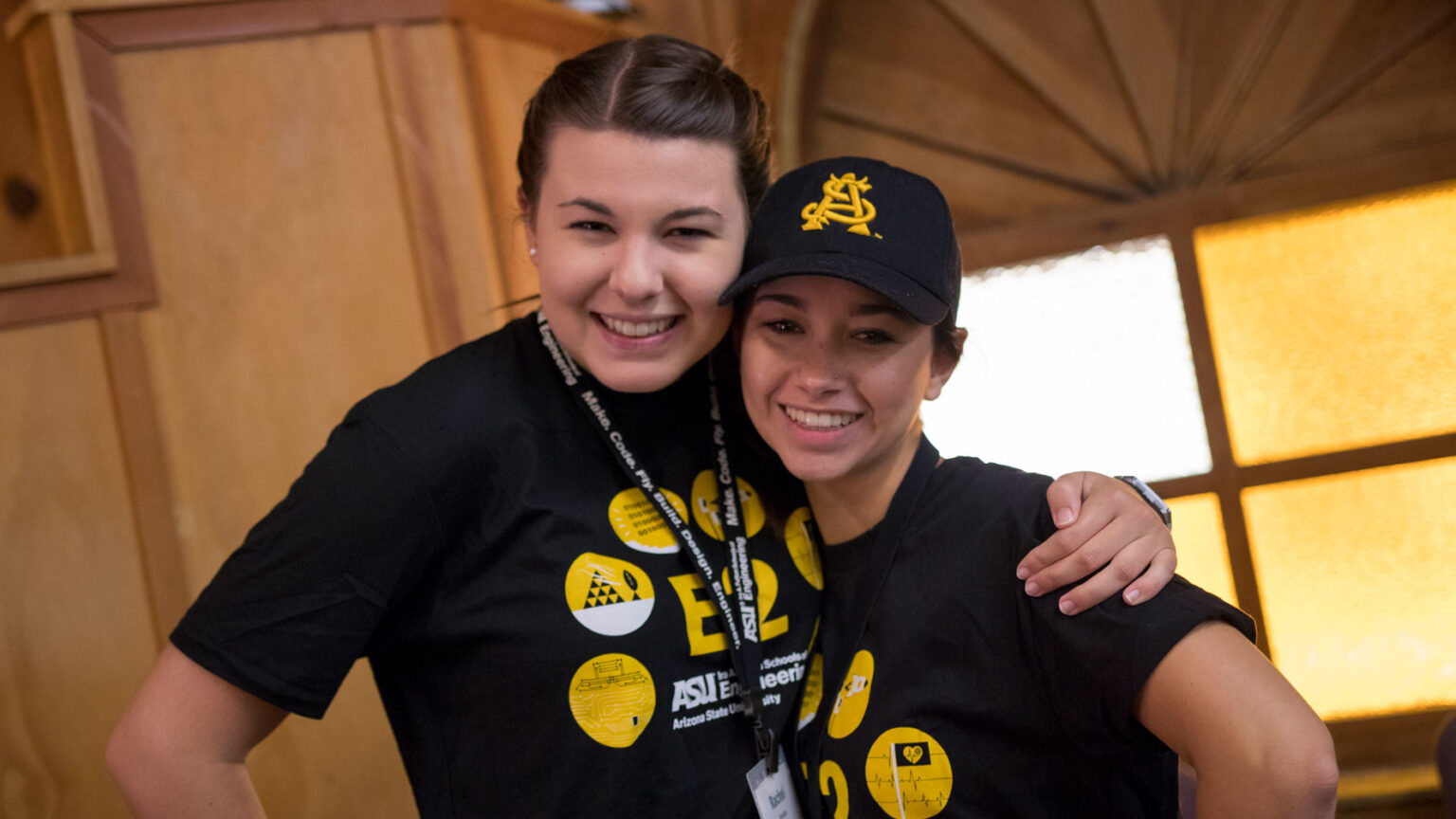
“After reading the description for the SWE Outstanding Collegiate Member award, I could not think of a more appropriate or deserving candidate for such an award,” Scheller says. “Liz being chosen for this award truly validates and puts a spotlight on everything we as a community — with Liz at the helm — have worked so hard to build over the last few years. I hope that through this award, Liz and SWE ASU can continue to expand our work for the betterment of the community around us.”
Alicia Baumann, a lecturer in the Fulton Schools and the SWE ASU section undergraduate advisor, says Jones embodies SWE’s mission to advance, aspire and achieve every day. Jones’ passionate leadership in partnership with the members’ support made the achievement possible.
“As Liz Jones empowers young women of all age levels, those women and experiences drive her to push boundaries and set new goals for how our ASU SWE students can impact our community,” Baumann says. “We all look forward to seeing what Liz will accomplish in the future. With her on our side, I know our future young women at ASU will have more opportunities than ever.”
Jones will be recognized at WE20, the national SWE conference held online November 3–14.
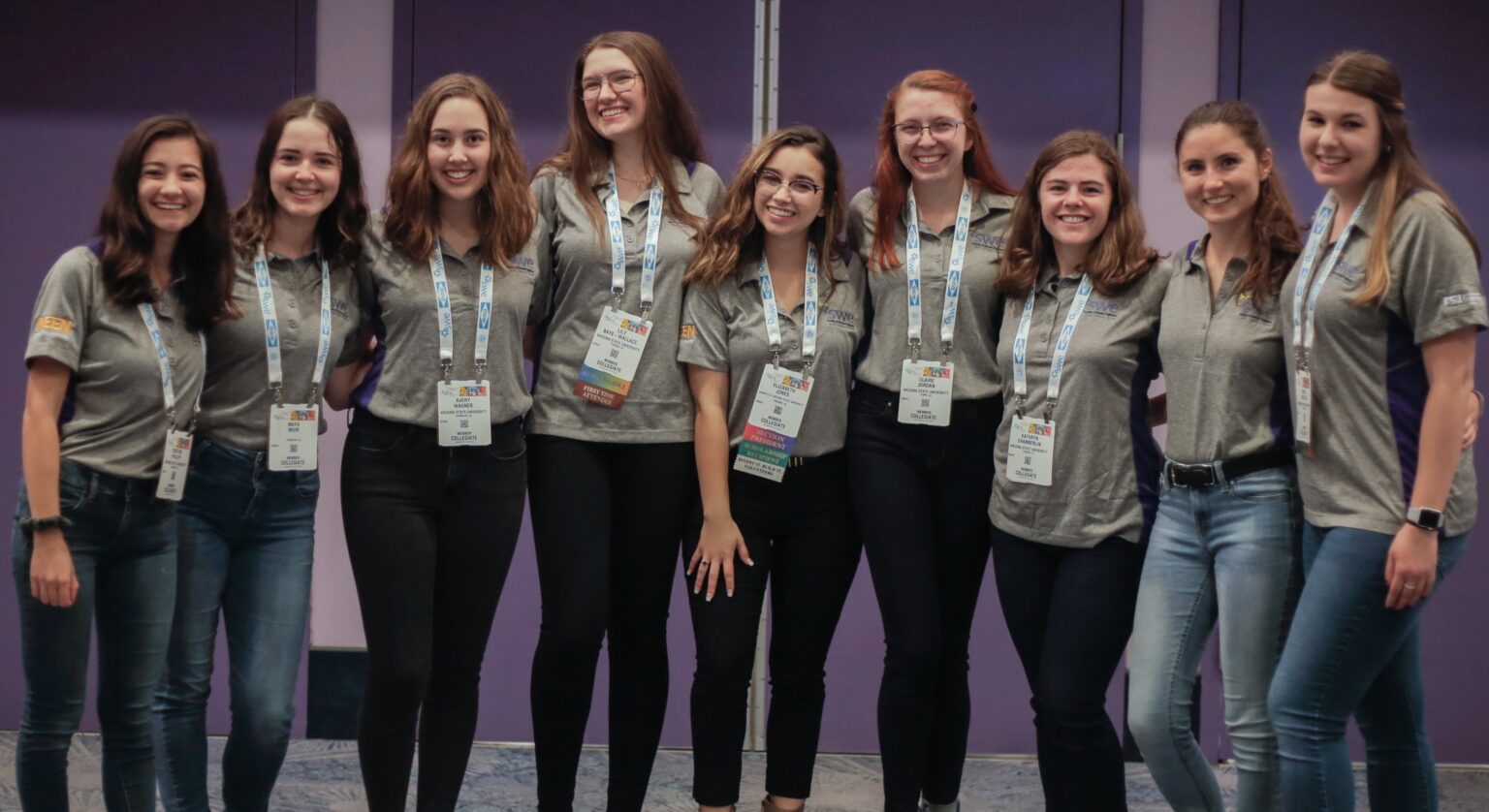
Joining and leading a supportive community of engineers at ASU
Jones’ SWE journey began in high school, where she learned about the organization through outreach events for incoming ASU students.
Finding a community of supportive engineers has been key to her many successes in a challenging field that has not always been welcoming to women.
By the end of her first year, Jones had started her journey into SWE leadership. She served as the ASU section’s outreach officer her sophomore year, where she expanded events like GEAR Day, in which young students are invited to explore engineering through interactive activities.
“As outreach director, Liz innumerably expanded our annual GEAR Day event for children to learn more about STEM,” Scheller says. “Her passion, dedication and true care for the children are what drove her day after day to make the event the best ASU had ever seen.”
By the time she became a junior, Jones had her sights set on SWE’s top leadership position.
Jones served as president her junior year and recently started her second term in that role as a senior. She decided to apply for the position of president to “contribute back to the community” and provide additional resources and opportunities for the organization’s growth.
“I saw the potential for growth as membership numbers were rapidly increasing just before my presidency, and to adjust our planning, opportunities and support for those in the engineering community who identify as women and bring in additional allies,” Jones says.
Under Jones’ leadership, the ASU section has helped many more Sun Devil engineers grow their identities, with the section’s membership continuing its dynamic increase by 86% in the last academic year. The organization now includes more than 300 dues-paying SWE members, with 50 highly active section members who attend meetings and workshops, and who are involved in various activities the organization runs.
Those members are the most rewarding part of the organization for Jones. She says it’s especially encouraging when she sees others in SWE succeed.
Jones has watched her mentees just starting out as engineering majors become leaders in SWE, nontraditional students return to school with a better support system, and her peers get internships and job offers through SWE-supported attendance at conferences to further their careers.
Scheller says, “Liz spends a lot of her time silently and invisibly helping those around her. I felt it was important that not only the ASU but the larger SWE community get a chance to learn about the ways that Liz has impacted those around her.”
Promoting diversity in engineering
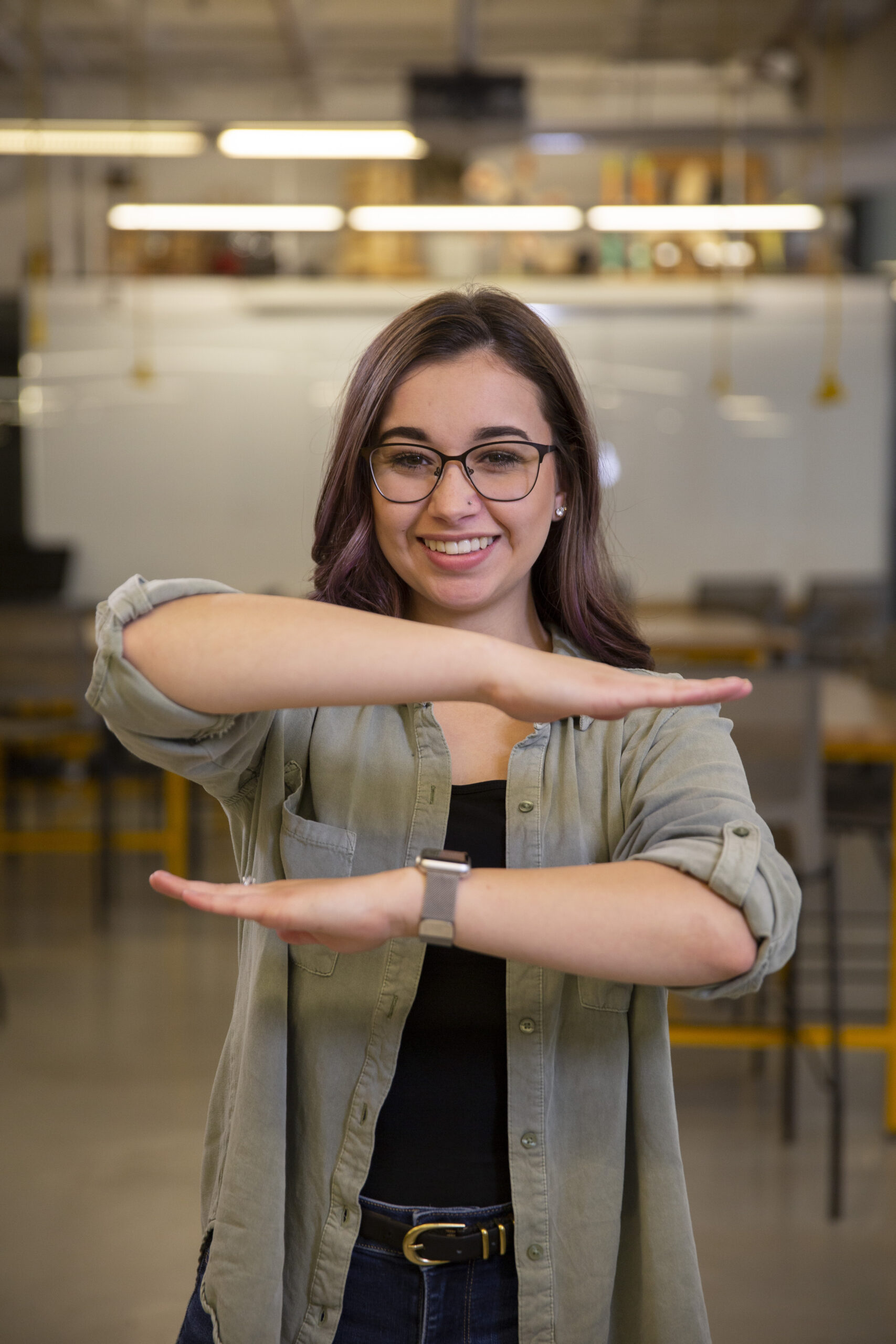
Jones participates in an International Women’s Day event. She combines her technical education with an honors thesis that explores how a diverse community can foster a sense of belonging in engineering. Photographer: Connor McKee/ASU
Jones is passionate about advocating for diversity and inclusion — something she considers a cornerstone of her identity as an engineer and a key part of ASU’s mission.
“We’re making substantial changes in conversations about diversity and inclusion in engineering,” Jones says, adding that the ASU section of SWE not only focuses on female engineers, but non-female-identifying allies and resources for everyone to be part of the conversation.
Jones is a natural at leading this dialogue, with a long-standing passion for guiding youth to follow their STEM dreams.
“I love being able to help people explore what they want to be when they grow up, and that traditional gender roles are shifting and you’re no longer constrained by them,” she says.
She also has held numerous positions outside of SWE that also allow her to be a mentor and inspire other women to become engineers. These include roles as a mentor in the Engineering Futures program, as a Fulton Ambassador showing prospective students what it’s like to be a Sun Devil engineer and tutoring her peers to help them succeed in difficult engineering courses.
She has even turned this passion into her honors thesis as a student in Barrett, The Honors College. This project, which is the culmination of her undergraduate education, focuses on self efficacy and a sense of belonging in engineering.
Jones says role models are one important aspect of developing her identity and confidence as an engineer.
“For me, role models have helped me get through those times when I had self doubt. Without people like Alicia Baumann, I would have dropped engineering. My mentors were always a voice of encouragement and said I was worth giving myself the chance to do what I wanted to do,” Jones says.
“Role models can help you see that people have gone through it, and by getting through it yourself, you’re setting an example for future generations.”
Engineering a rewarding future
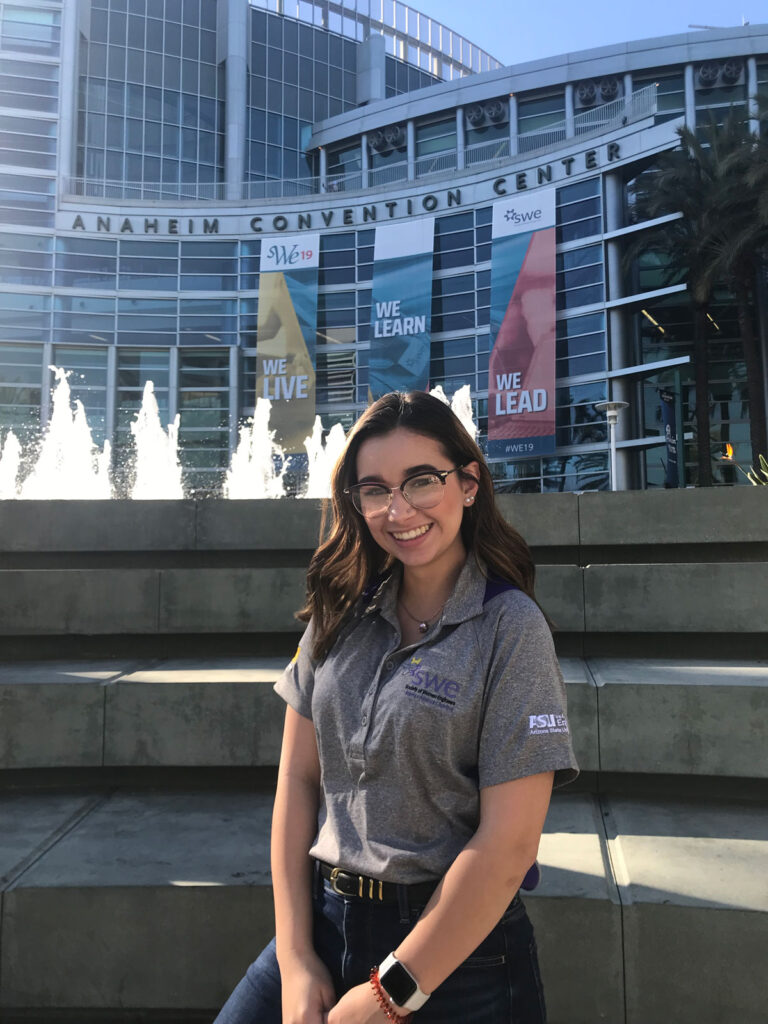
Jones attends WE19 in Anaheim, California. At this event, Jones gained confidence in her future as an engineering professional and found her passion for the aerospace and defense industry. Photo courtesy of Elizabeth Jones
As an electrical engineering major focusing on communications and signal processing, Jones works in the Bliss Laboratory of Information, Signals and Systems, conducting research on small-scale radars and solutions for medical and defense applications.
She has been an electrical engineering major since day one, but it took a couple years to figure out which industry she wanted to go into after graduating.
A chance encounter with aerospace and defense company Northrop Grumman put her on the path to an aerospace industry career and gave her confidence in her ability to be a successful engineering professional.
At SWE’s 2019 annual conference, WE19, a representative from Northrop Grumman interviewed her for an internship position. It turned out to be one of her proudest engineering moments.
“I wasn’t prepared at all, but it was reassuring that people saw I was capable in a way that I wasn’t yet seeing,” Jones says.
She has participated in two internships and worked part-time with the company during the past school year.
“My internships have validated that I can be a technical engineer and do any work that I want,” Jones says. “It’s reassuring that I can work in the big aerospace and defense industry — which is really male dominated — and I can pave the way for other women to do the same.”
Jones has been able to “put a bow on the package” of being an engineer and advocate through the Grand Challenges Scholars Program. With a project that focuses on the National Academy of Engineering Grand Challenges of education, now encompassed by the theme of “joy of living,” Jones has been able to take advantage of interdisciplinary opportunities to promote diversity and inclusion in engineering outside of the classroom. She also will be recognized by ASU and NAE for her efforts as a Grand Challenges Scholar when she graduates in the spring.
But her journey won’t be complete. Jones is staying at ASU for a fifth year to finish her graduate degree in electrical engineering as part of the 4+1 accelerated master’s degree program. She plans to continue to support the ASU section members of SWE and the wider engineering community to achieve their own goals.
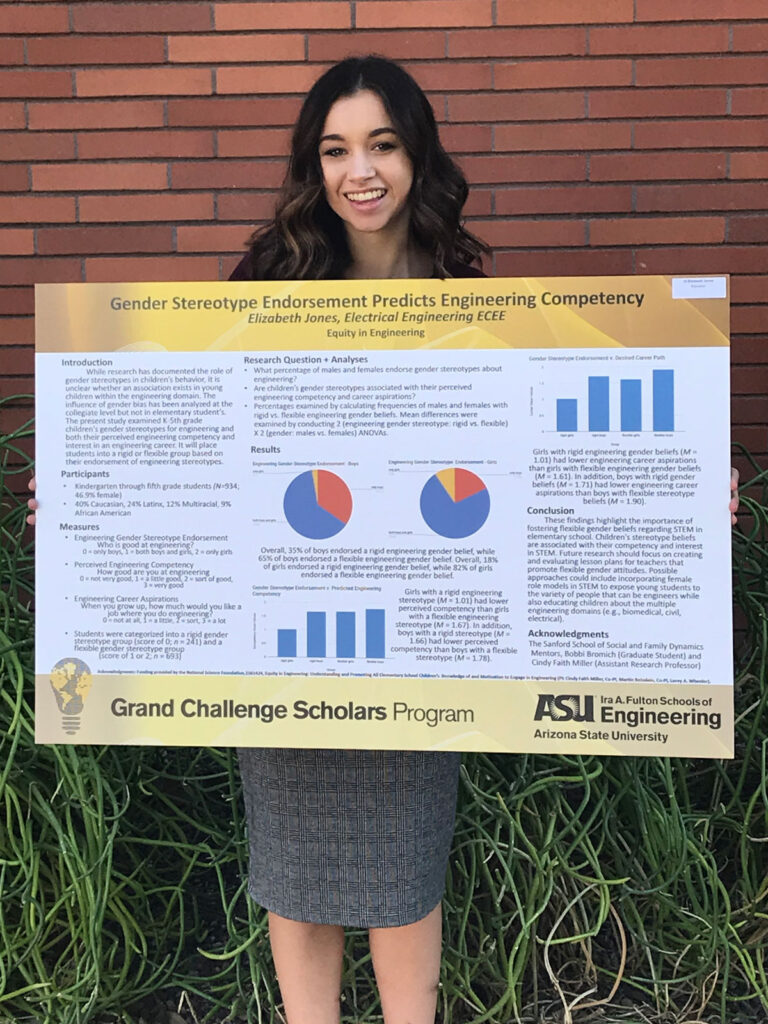
Learn more
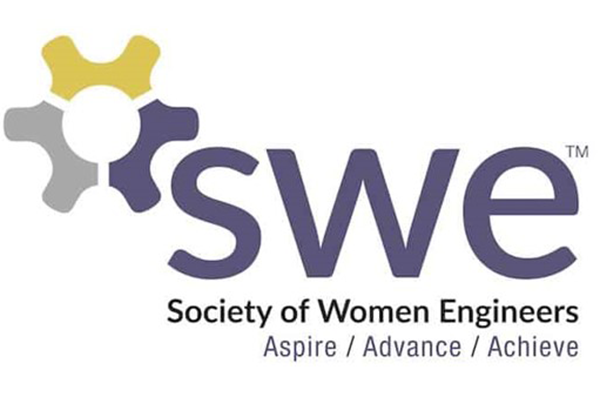
The Society of Women Engineers is the world’s largest advocate and catalyst for change for women in engineering and technology.
The ASU chapter of the Society of Women Engineers welcomes new members.
You may also like
Neithalath awarded $2 million to recast concrete construction
ASU engineering is leading a new global research network to advance the use of 3D concrete printing in the construction industry.
Environmental consciousness guides new education endeavor
The Lemelson Foundation selected ASU to deliver new engineering curriculum dedicated to teaching environmental and socially conscious engineering practices.
Vijay Vittal: 15 years of energizing power systems engineering
Vijay Vittal is ending his tenure as director of the Power Systems Engineering Research Center after an impactful 15 years of modernizing the electric grid.
From a bundle of nerves to centered calm
Two Phoenix metropolitan area residents are benefitting from a device developed by neuroscience-research-based startup Hoolest, led by ASU alumnus Nick Hool.
